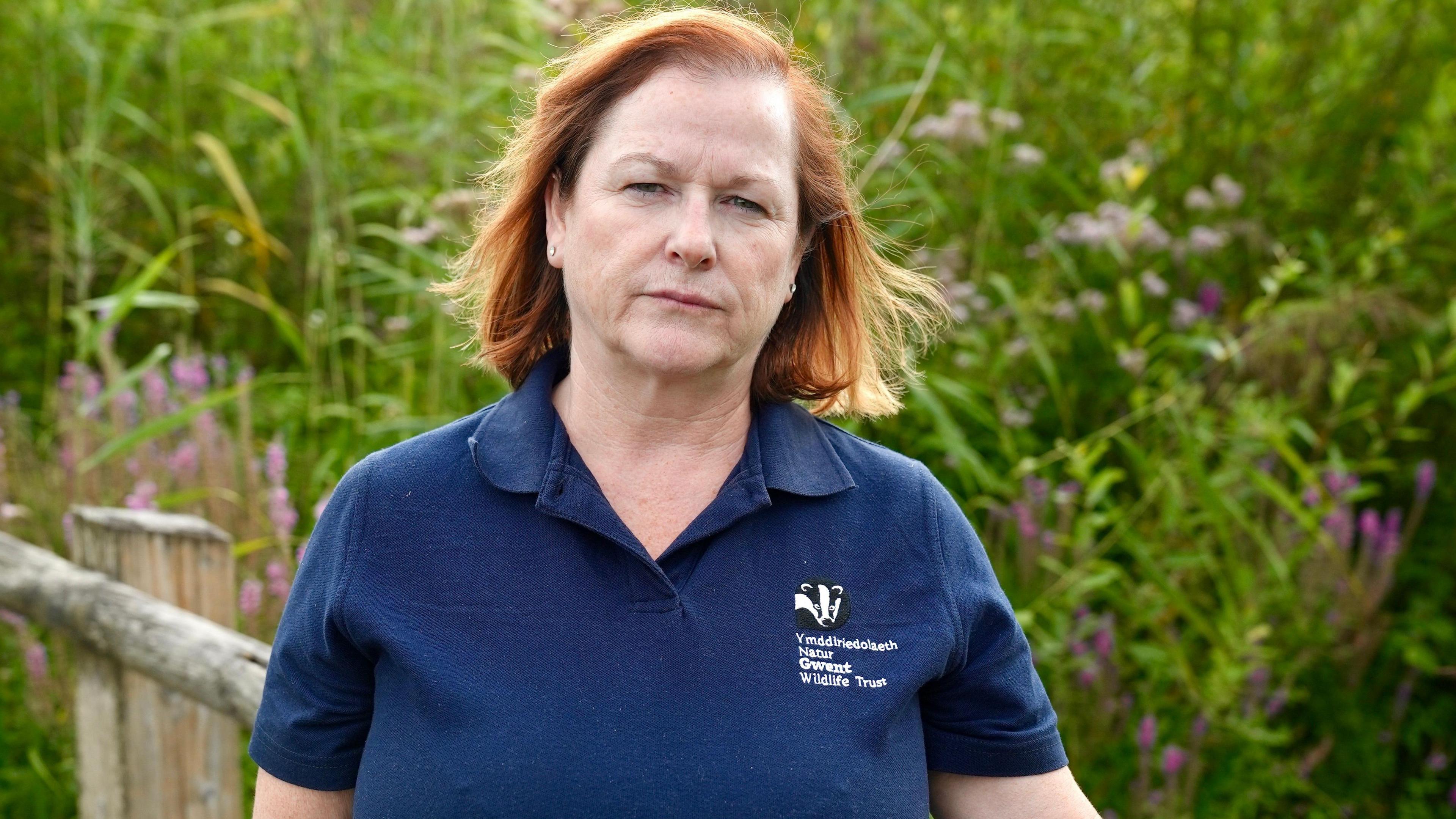Bills forced mum to choose heating or eating
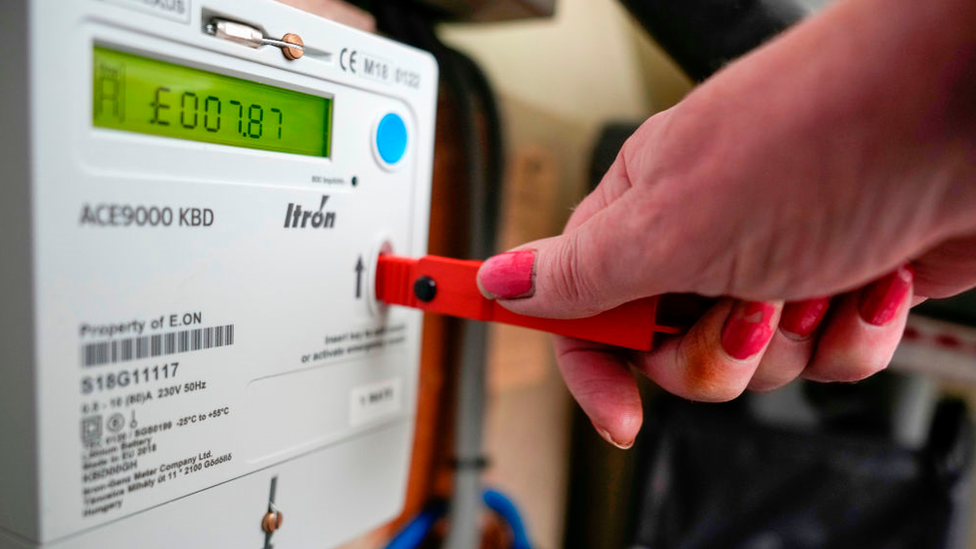
From Wednesday, the price for energy for a typical household will go up by 2%
- Published
A mum pushed to the brink by the cost-of-living crisis has spoken about making the choice between heating or eating.
Michelle Gullick warned families that had been financially stable were at risking of slipping into debt.
Things were made tougher by being on a pre-payment meter, she said, which have historically been more expensive - though charges were brought into line with those of direct debit customers in 2023.
Ms Gullick said: "Last winter, with the dramatic increase, it was particularly hard.

Michelle Gullick warned families that had been financially stable risked slipping into debt
"With the after-effects of Covid, it was often a choice between whether we ate or whether we had the heating on.
"Being on a pre-payment meter was more expensive as well, due to the standing charges, which just added to the anxiety.
She and her family have cleared their debts but October's price increases worried her.
From Wednesday, the price for energy for a typical household will go up by 2% to £1,755 per year.
"It's very much looking like we'll be back to square one," she said.
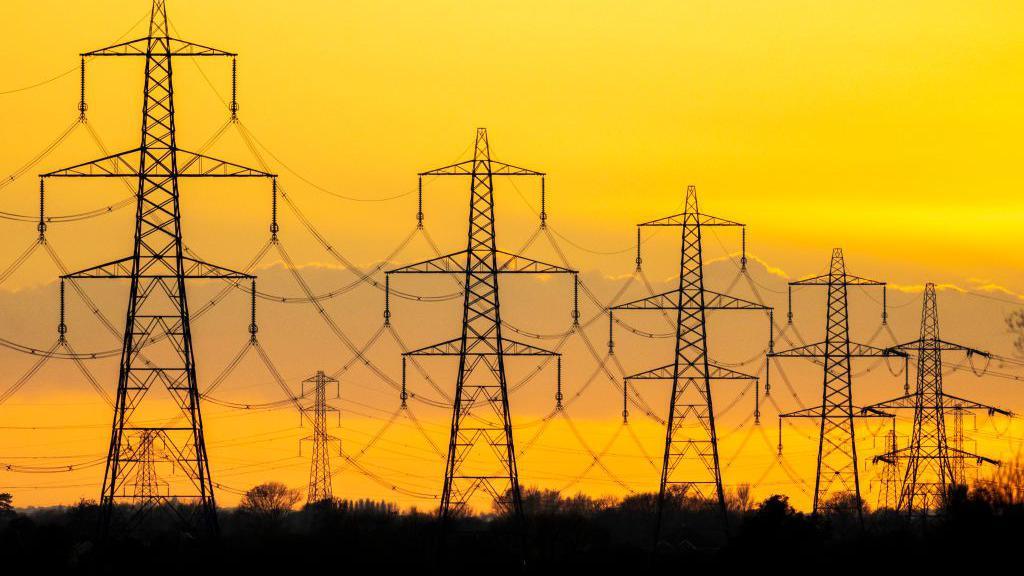
Finance was a "constant" worry.
Ms Gullick, from Pontypridd, Rhondda Cynon Taf, said she was not earning enough to cover her bills.
"You're not heating your home. The children aren't warm."
She while energy providers would put emergency credit on her meter she was "continuously" paying it back.
"In the long run, it's more expensive," she said.
She said the prime minister's promise to cut energy bills by £300 did not give her hope.
"I have no belief that anything will improve whatsoever, " she said.
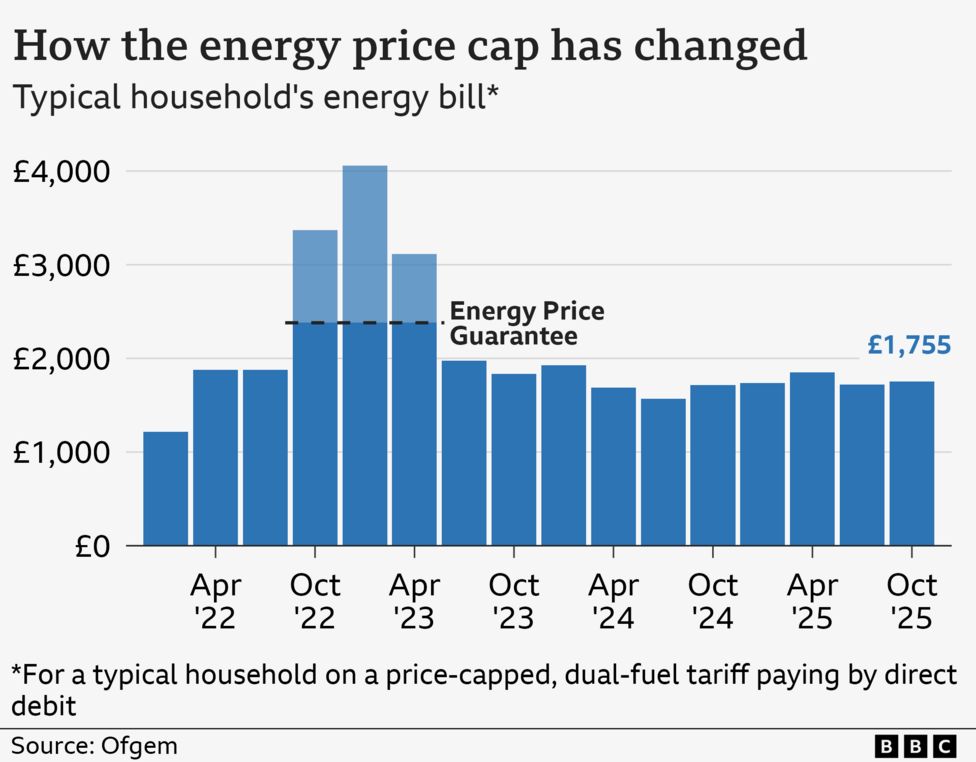
How much will heating costs rise and what help is available?
With colder weather on the way, millions of households in Wales face another spike in energy costs.
Bills are significantly lower than they were at the peak of the energy crisis, but another winter of high energy bills, coupled with rising food costs, will be a cause of concern for many.
We take a look at what help is available from the Welsh and the UK government.
Welsh government support
The Welsh government estimates that one in four households in the country were living in fuel poverty this time last year, meaning they spent more than 10% of their total income on keeping their home warm.
Moreover, fuel poverty charity National Energy Action claimed 83% of all Wales' lower-income households were in fuel poverty last winter - with almost a quarter of those households in severe fuel poverty, spending more than 20% of their income on energy bills, the charity said.
For those in extreme hardship, the Discretionary Assistance Fund, external provides grants to help pay for gas and electricity.
The Welsh government is also providing funding to the Fuel Bank Foundation, external, a charity which supports people who have to pre-pay for their fuel and are at risk of disconnection. The charity can provide emergency financial assistance.
More generally, the Welsh government's Warm Homes programme funds energy efficiency improvements via its Nest scheme, external.
UK government support
Energy regulator Ofgem says the energy costs are rising because transporting energy has become more expensive, and because the government needs to cover the cost of its energy policies.
Those policies include providing extra financial support for people on benefits, as well as the cost of switching generators, such as windfarms, on and off - to maintain overall supply and demand.
Policies in place to help those struggling with bills include the Warm Home Discount, external scheme, which offers low-income households, and those vulnerable to cold-related illness, a one-off energy bill rebate of £150.
The scheme reopens in October 2025, with electricity suppliers applying the discount directly to bills of those eligible, which usually happens automatically.
Those on a pre-pay, or pay-as-you-go, electricity meter can also get the discount if they are eligible - for example via a voucher to top up the meter.
Older people will receive a winter fuel payment, external to help pay for heating bills. Individuals of state pension age, up to 79 years old, who are not living with another eligible person, will receive £200, while single householders aged 80 or older receive £300.
Only pensioners with an annual income of £35,000 or less will be eligible for the payment. They will receive a letter to say how much they will receive in October or November, with payment due in November or December.
A Cold Weather Payment, external, helps people on certain benefits if the temperature drops to, or below zero, for seven consecutive days. Those eligible will get £25 for each 7-day period of very cold weather between 1 November 2025 and 31 March 2026.
The energy price cap - how much an energy supplier can charge for each unit of energy, and for connecting customers to a gas and electricity supply - is reviewed every three months.
The current charges are in place until January.
Analysis
Speaking on BBC Radio Wales Breakfast on Wednesday, Felicity Evans, BBC Wales money editor said: "Although energy bills have dropped from their peak in 2022, they remain a lot higher than they were before the invasion of Ukraine, around 29% higher.
"This year, we've also seen big increases in other utility bills as well, water is the big example. Of course, council tax has gone up too, and food prices have been going up as well.
"These things have a big impact, particularly on the finances of poorer households, because things like food and water, of course, are essential spends," she said. "There's not a lot of room for maneuver in cutting back."
"The most recent estimates from the Welsh government were that in October last year, there were a quarter of Welsh households unable to afford to keep their home adequately heated - that's 340,000 households."
She said it is important to remember that "this 2% increase is a cap on what you get charged per unit of energy you use".
She added: "So it's not a limit on the overall bill, which can vary depending how much energy you actually use."
How can I save money on energy?
Felicity Evans said it is a good idea to switch suppliers as some fixed rate deals can be better than variable rates.
"If you can afford the uncertainty, paying by direct debit is usually the cheapest option for your bills."
She said social tariffs are under claimed in Wales and people claiming benefits should contact their supplier to ask if they qualify.
"The other option is thinking about ways to reduce your energy usage. Though it is recommended that the temperature of your home shouldn't fall below 18 degrees."
Related topics
- Published1 October

- Published13 March
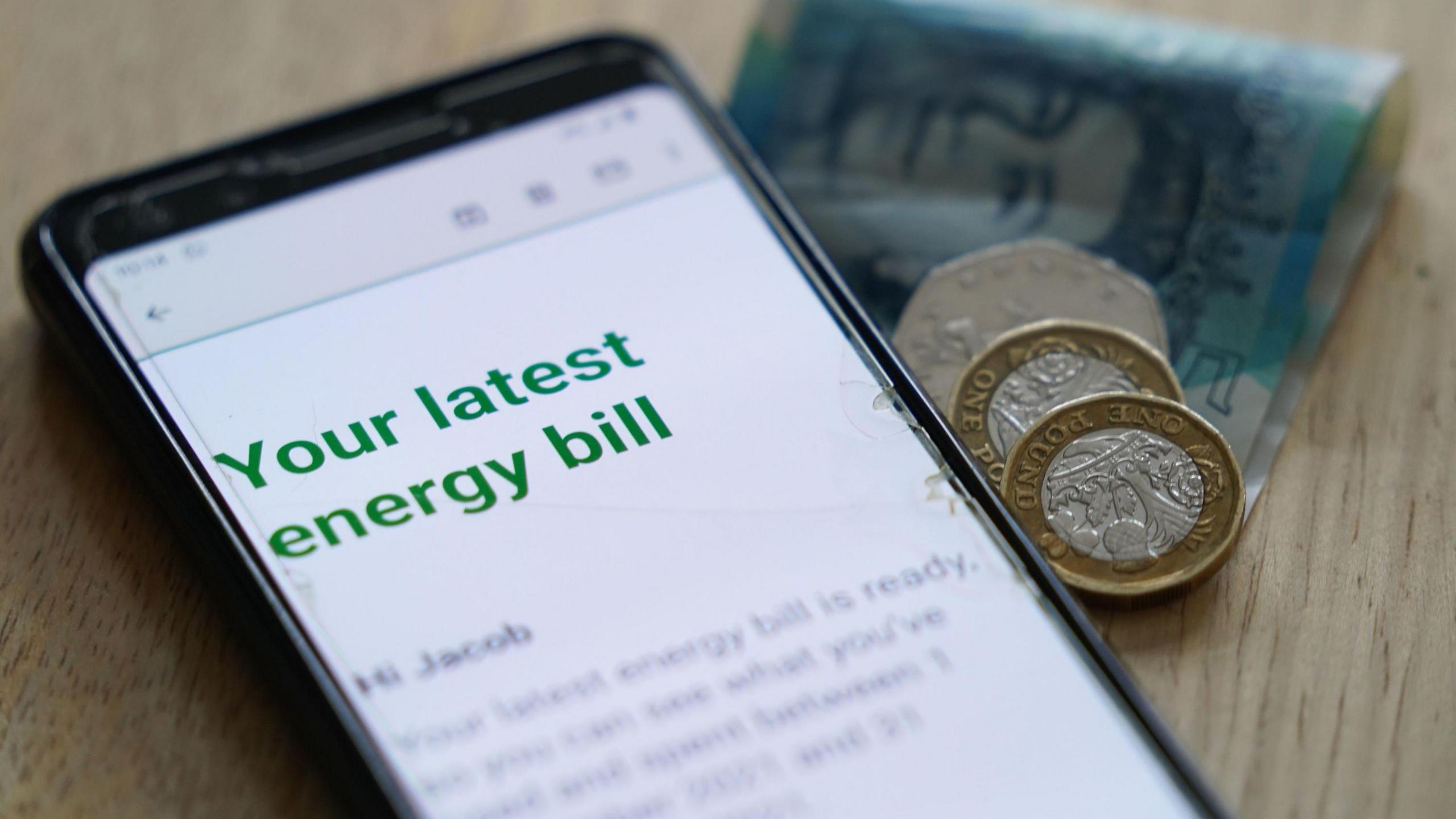
- Published11 July
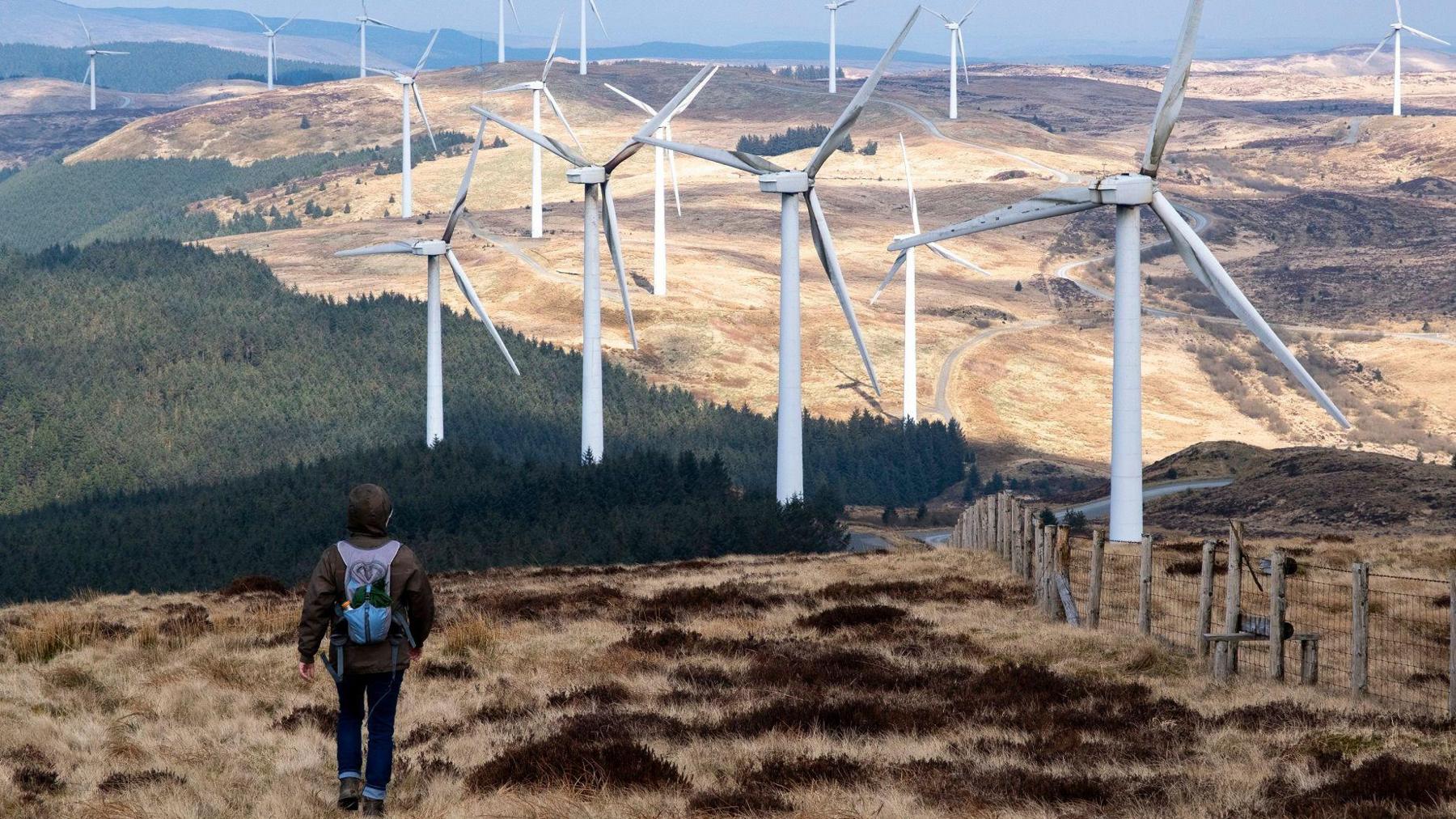
- Published10 September
